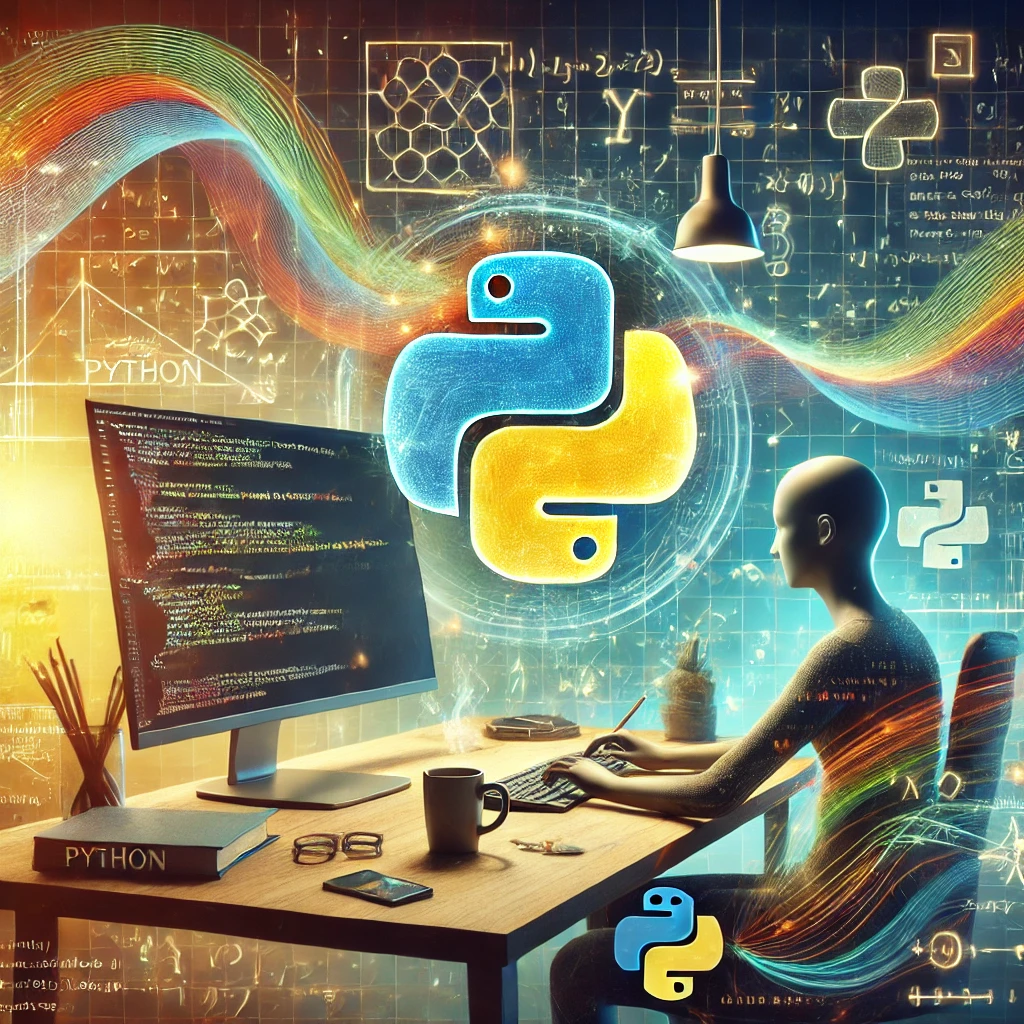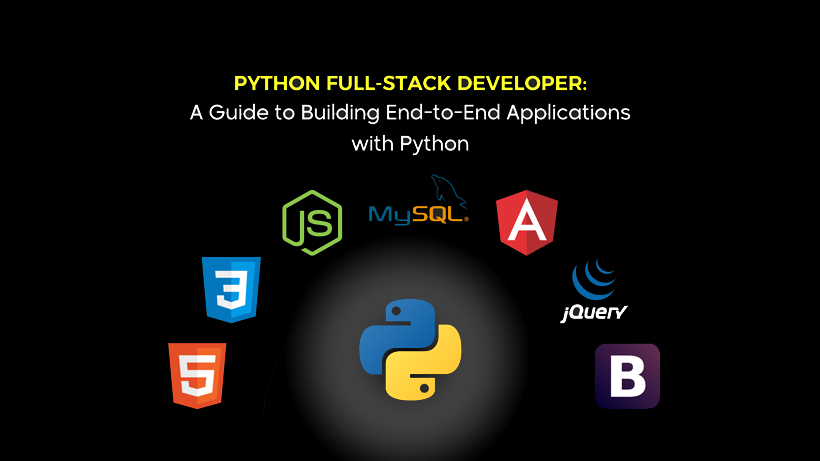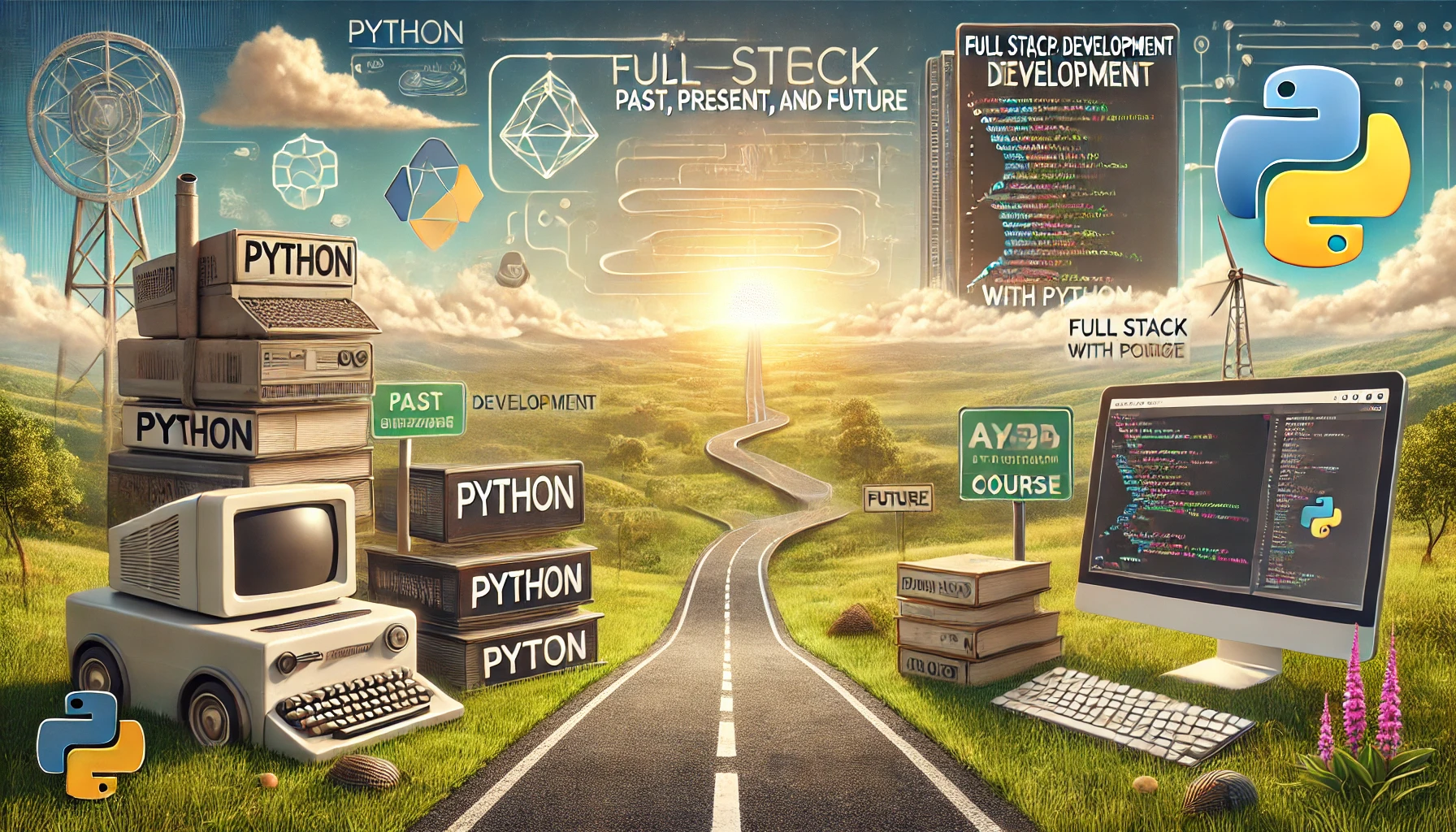Python's Full Stack Domination: A Journey Through Past, Present, and Future
The Evolution of Python in Full Stack Development
The Past: Simplicity and Server-Side Power

Python, born in the early 1990s, wasn't initially intended for web development. But its clean and readable syntax quickly made it a favorite for various programming tasks. Early on, developers mainly used Python for backend development due to its strong server-side scripting capabilities. The emergence of frameworks like Django and Flask gave Python a massive boost, empowering developers to create robust web applications with ease.
Imagine building both the server logic and the application's core functionality using the same language – Python provided that seamless integration, making it a game-changer in the early days of web development.
The early days of Python’s involvement in web development saw it being primarily used for scripting and automating tasks. Developers were drawn to Python’s clean syntax, which allowed them to quickly write and maintain complex server-side logic without a steep learning curve. As the web evolved, the demand for more dynamic and interactive applications increased, which led to the development of web frameworks like Django and Flask.
The Present: Front-end & Back-end Synergy
Fast forward to today, and Python has become a full stack superstar. Developers are leveraging its power to create interactive, scalable, and efficient web applications that span both front-end and back-end development. Thanks to advancements in Python frameworks and libraries, developers can seamlessly manage both sides of web application development.
Think of frameworks like Flask and Django for the backend, handling all the server-side logic and data management. Then, consider tools like React or Vue, combined with Python APIs, to create dynamic and engaging user interfaces on the front end. This synergy allows developers to build complex and feature-rich web applications with a single language.
The Future: Cloud, AI, and Beyond
The future of Python in full stack development is brimming with possibilities. As AI and ML technologies continue to evolve at a rapid pace, Python is playing a key role in creating innovative applications. Cloud computing and serverless architectures are also pushing the boundaries of scalability and performance, and Python is well-equipped to handle these demands.
Python's ability to seamlessly integrate with AI and ML libraries like TensorFlow and PyTorch makes it a go-to choice for building intelligent web applications. As the world becomes increasingly data-driven, Python will continue to drive innovation in full stack development.
Why Python is the Full Stack Champion
Readability and Simplicity: Code That Speaks for Itself
One of the reasons Python has become so popular is its clean and intuitive syntax. It's designed to be easy to read and understand, even for beginners. This readability translates to faster development times and easier maintenance, making Python an excellent choice for both individual projects and large-scale enterprise applications.
Think of Python code as a conversation – it's natural, clear, and easy to follow. This makes it much easier to collaborate with other developers and to maintain your codebase over time.

Comprehensive Libraries & Frameworks: A Developer's Dream
Python boasts a rich ecosystem of libraries and frameworks that cover almost every aspect of web development. From Django and Flask for building web applications to NumPy and Pandas for data manipulation and analysis, Python has a library for just about every task. This abundance of resources means developers can save time and effort by leveraging pre-built tools and components.
Imagine having access to a vast library of pre-built tools and components, ready to be integrated into your projects. This not only accelerates development but also allows developers to focus on building innovative solutions rather than reinventing the wheel.
Cross-Platform Compatibility: Build Once, Run Anywhere
One of Python's strengths is its ability to run seamlessly across different operating systems. Whether you're working on a Windows, macOS, or Linux machine, Python code will execute without a hitch. This makes it a highly versatile language for building web applications that can be accessed by users on any platform.
Think of Python as a universal language for the web. It allows you to build web applications that can reach a global audience without needing to adapt the code for each platform. This saves time and effort while ensuring a consistent user experience.
A Strong Community: Support and Resources Galore
The Python community is one of the largest and most active in the world. This means that if you ever encounter a problem or need help with your code, there are countless resources available online and in person. From forums to documentation to tutorials, you'll never be alone in your Python journey. The community also contributes to the development of new libraries and frameworks, ensuring that Python stays at the forefront of innovation.
Imagine having a vast network of experienced developers ready to help you. This supportive community fosters knowledge sharing, collaboration, and continuous improvement, making Python an incredibly welcoming and empowering language to learn.
AI and Machine Learning Integration: Innovation at Your Fingertips
Python's embrace of AI and ML is one of its key advantages in today's tech landscape. Libraries like TensorFlow and PyTorch provide the tools needed to build intelligent systems, from image recognition to natural language processing. This integration empowers full stack developers to create web applications that are not only functional but also intelligent and adaptive.
Think of AI and ML as the next generation of web development. Python allows you to incorporate these technologies into your web applications, creating truly innovative and personalized user experiences.
The World of Full Stack Python Applications
Web Applications: Websites That Wow
Python is a popular choice for building interactive and dynamic websites. Frameworks like Django and Flask offer a solid foundation for creating everything from simple landing pages to complex e-commerce platforms. With Python, you can build user-friendly websites that are both visually appealing and functionally robust.
Think of building websites with Python as a creative process. You can craft beautiful user interfaces, manage user accounts, process payments, and even integrate AI features to enhance user engagement.
Data-Driven Apps: Unleashing Insights
Python is an excellent language for building data-driven applications. Libraries like Pandas and NumPy make it easy to manipulate, analyze, and visualize data. This ability to extract valuable insights from data allows developers to create applications that provide powerful analytics, dashboards, and data-driven decision-making tools.
Imagine building applications that help businesses understand their customers, analyze market trends, and make data-informed decisions. Python gives you the power to unlock the potential of data and create applications that drive real-world impact.
AI-Powered Solutions: Personalized Experiences
AI is transforming the web, and Python is at the forefront of this evolution. With libraries like TensorFlow and PyTorch, Python allows you to integrate AI models into your web applications, creating personalized experiences and intelligent features. This could include everything from recommending products based on user preferences to providing real-time customer support powered by chatbots.
Think of AI as the key to creating truly intelligent and engaging web applications. Python gives you the tools to build systems that can learn from user interactions, adapt to changing conditions, and provide personalized experiences.
APIs and Microservices: Seamless Connectivity
Python is ideal for building APIs (Application Programming Interfaces) and microservices. APIs act as bridges between different applications, allowing them to communicate and share data seamlessly. Microservices break down large applications into smaller, independent components, making them easier to develop, deploy, and scale. Python's versatility makes it a perfect choice for building both APIs and microservices, enabling efficient communication and collaboration between different parts of a web application.
Imagine creating a web application with multiple interconnected components that work together seamlessly. Python allows you to build these components, manage their interactions, and ensure smooth data exchange, creating a cohesive and efficient web application.
Mastering Full Stack Development with Apnaguru
Why Choose Apnaguru's Full Stack Python Course?
Ready to take your full stack development skills to the next level? Apnaguru offers a comprehensive Full Stack Development with Python course designed to equip you with both the theoretical knowledge and practical skills you need to succeed in today's tech world. The curriculum includes modules on web development, AI integration, and cloud technologies, ensuring you gain a well-rounded understanding of the full stack development landscape.
Apnaguru's course is tailored to provide you with the skills and knowledge you need to build a successful career in full stack development.
Hands-on Projects: Real-World Experience
The Apnaguru Full Stack Python course emphasizes practical experience through hands-on projects. You'll work on real-world scenarios, applying the concepts you've learned to build functional web applications. This hands-on approach ensures that you gain the practical skills needed to succeed in the job market.
Imagine building a portfolio of projects that showcases your full stack development expertise. The Apnaguru course helps you gain the experience you need to stand out in the competitive tech industry.
AI-Powered Learning: Enhance Your Skills
Apnaguru incorporates AI-powered learning tools into its Full Stack Python course. These tools provide personalized feedback, track your progress, and offer targeted learning resources. This personalized approach ensures that you get the most out of your learning experience and develop a deep understanding of the concepts.
Think of AI as your personal tutor, guiding you through the course and helping you identify areas where you can improve. Apnaguru's AI-powered learning tools ensure that you get the support you need to succeed.
Expert Instructors: Learn from the Best
Apnaguru's Full Stack Python course is taught by experienced industry professionals who bring real-world experience to the classroom. You'll learn from experts who have worked on cutting-edge projects, providing you with valuable insights and practical advice.
Imagine learning from experienced developers who have built successful applications and navigated the challenges of the tech industry. Apnaguru's instructors provide you with the guidance and mentorship you need to thrive in your full stack development journey.
Career Support: Your Path to Success
Apnaguru goes beyond technical skills, providing career support to help you launch a successful full stack development career. You'll receive job assistance, including interview preparation and resume building. Apnaguru is committed to helping you achieve your professional goals.
Think of Apnaguru as your partner in your full stack development journey. They provide you with the tools and resources you need to not only master the technical skills but also to navigate the professional landscape and achieve your career aspirations.
Enroll now to boost your career! Check out the Full Stack Python Course at Apnaguru.
The Future is Python: Embrace the Possibilities
As the world of technology continues to evolve, Python's role in full stack development will only grow stronger. Its adaptability, powerful libraries, and active community make it a language that can handle the challenges of tomorrow. Whether you're building the next groundbreaking web application or exploring the possibilities of AI, Python provides the foundation you need to succeed.
The future of full stack development is bright, and Python is the key to unlocking endless possibilities. So, dive into the world of Python and embrace the exciting journey that lies ahead!
Conclusion:
Python’s role in full stack development is set to grow as new technologies emerge. Its adaptability, combined with robust community support, has established Python as a key language for web applications, data analysis, and AI integration. Whether you are new to coding or an experienced developer, learning full stack development with Python can open doors to exciting opportunities in the tech world.
If you're ready to master full stack development, consider Apnaguru’s Full Stack with Python Course and embark on a rewarding journey with one of the best programming languages of today and tomorrow.
